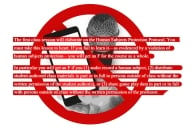You have /5 articles left.
Sign up for a free account or log in.
Few parts of their jobs seem to annoy professors more than grading. The topic consumes gripe sessions, blog posts and creates plenty of professorial angst (not to mention student angst).
Cathy Davidson has decided that the best way to change grading is to take herself out of it. Davidson, a Duke University English professor, announced on her blog last week that she was going to give students the power to earn A's or some other grade based on a simple formula in which she wouldn't play much of a role.
"I loved returning to teaching last year after several years in administration ... except for the grading," she wrote on her blog. "I can't think of a more meaningless, superficial, cynical way to evaluate learning than by assigning a grade. It turns learning (which should be a deep pleasure, setting up for a lifetime of curiosity) into a crass competition: how do I snag the highest grade for the least amount of work? how do I give the prof what she wants so I can get the A that I need for med school? That's the opposite of learning and curiosity, the opposite of everything I believe as a teacher, and is, quite frankly, a waste of my time and the students' time. There has to be a better way...."
Her approach? "So, this year, when I teach 'This Is Your Brain on the Internet,' I'm trying out a new point system. Do all the work, you get an A. Don't need an A? Don't have time to do all the work? No problem. You can aim for and earn a B. There will be a chart. You do the assignment satisfactorily, you get the points. Add up the points, there's your grade. Clearcut. No guesswork. No second-guessing 'what the prof wants.' No gaming the system. Clearcut. Student is responsible."
That still leaves the question of determining whether students have done the work. Here again, Davidson plans to rely on students. "Since I already have structured my seminar (it worked brilliantly last year) so that two students lead us in every class, they can now also read all the class blogs (as they used to) and pass judgment on whether they are satisfactory. Thumbs up, thumbs down," she writes.
"If not, any student who wishes can revise. If you revise, you get the credit. End of story. Or, if you are too busy and want to skip it, no problem. It just means you'll have fewer ticks on the chart and will probably get the lower grade. No whining. It's clearcut and everyone knows the system from day one. (btw, every study of peer review among students shows that students perform at a higher level, and with more care, when they know they are being evaluated by their peers than when they know only the teacher and the TA will be grading)."
Several of those posting comments on Davidson's blog expressed support for her approach or outlined similar strategies they had tried or wanted to try.
One post, "Never underestimate grade orientation," noted a caution. "I can see this working with a small course. I tried something similar several years ago at Buffalo. My mistake was to make it a 'curved' class (though only a positive curve). Two 'gangs' (one a group of fraternity brothers, the other just people who met and formed up) reached an agreement that they would vote up each others' work no matter what, and non-members' work down, no matter what, in order to increase their own grade in the class favorably, and hurt others' grades. I wrote it up a little here. When I intervened, I got complaints: I had set up the rules, several said, if I didn't like the outcome, how was it their fault."
Another posting describes a more successful attempt of a similar approach: "I've done something like this with my big undergrad class, 'Intersections: Race, Gender & Sexuality in US History,' for years now. They do all the work, at a 'good faith' level of quality (earning a check from their TA), show up on time to all classes and participate in discussion sections -- they get an A. Grades scale down from there. The greatest thing about it is that many students without previous educational privilege *love* it and often do extremely well when not being judged in the usual way -- reading a book a week, writing response papers every week, and ultimately participating at grad student level. Entitled students who try to skate by on a good prose style do not like it at all."
In an e-mail interview, Davidson said her announcement represents more than her personal distaste for grading as we know it. Rather, her views relate to ideas she explores in her forthcoming book (from Viking Press next year), The Rewired Brain: The Deep Structure of Thinking for the Information Age.
"Many of us are frustrated with grading as presently, historically constructed and are finding a mismatch between the kinds of learning happening on the Internet (from a 5-year-old customizing her Pokemon onward) and the rigid forms of assessment that has become the hallmark of formal education, K-12 and beyond, in the late 20th and now the 21st century. In an era when customizing, process, collaboration, and learning from mistakes are hallmark, when we are all having to revise how we think about the human desire to work together towards a goal -- whether a Wikipedia entry or a Netflix software competition -- we are saddled with a Machine Age model of assessment which is as rigid, reductive, uncreative, and uncollaborative as we can imagine. We know from early childhood studies that if you tell an American toddler 'here comes the teacher,' he sits up straight, looks up, shuts up, and stops smiling. That is not the kind of teacher I want to be. But by the time young people enter college, they have cordoned off 'education' into 'grading.' "
Her approach to grading, Davidson said, "encourages students to rethink everything they've learned about grading within higher education and encourages them to think about how you evaluate quality and performance -- not for a grade but for the respect of one's peers and one's own self-respect. This is one of the important skills of the 21st century."
She stressed that she's not abandoning the role of grading, but having students take ownership of the task in a way that shows that "evaluation, in a serious way, is part of collaborative, interactive creativity. Right now, we have an educational system that encourages 'teaching to the test.' That's appalling as a learning philosophy and a total waste of precious learning time and opportunities in the digital age."
Whatever the results of her grading approach, Davidson is in a secure position -- as a highly regarded, tenured professor at a leading university -- to try something new. She acknowledged that there would be additional issues for a junior professor or non-tenure-track instructor taking this idea, but said that they shouldn't rule it out. And she noted problems with continuing with the status quo.
"One never knows what one can get away with pre-tenure and that is why I tell all of my students to make their department chairs partners in anything they do, from the most traditional to the most experimental -- and to keep a paper trail. That is, write to set up a meeting to explain one's pedagogical philosophy in a case like this, send it to your chair, ask to meet with the chair, discuss it, and then write a follow-up note thanking the chair for the meeting, recapping it, and giving her or him credit for any changes you've made in the syllabus (for example) and then send a copy of the revised syllabus. That is a helpful process for everyone involved as well as a wonderful addition to one's tenure portfolio," she said.
"Who wouldn't want a teacher who thinks seriously and deeply about what teaching means? I don't believe anything is risky if it is well thought out and well communicated. I happen to believe that just about everything is risky (including playing by the rules) without careful intention and careful communication."








